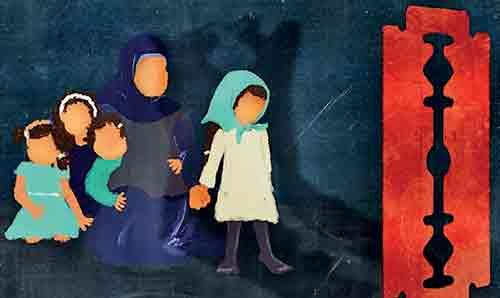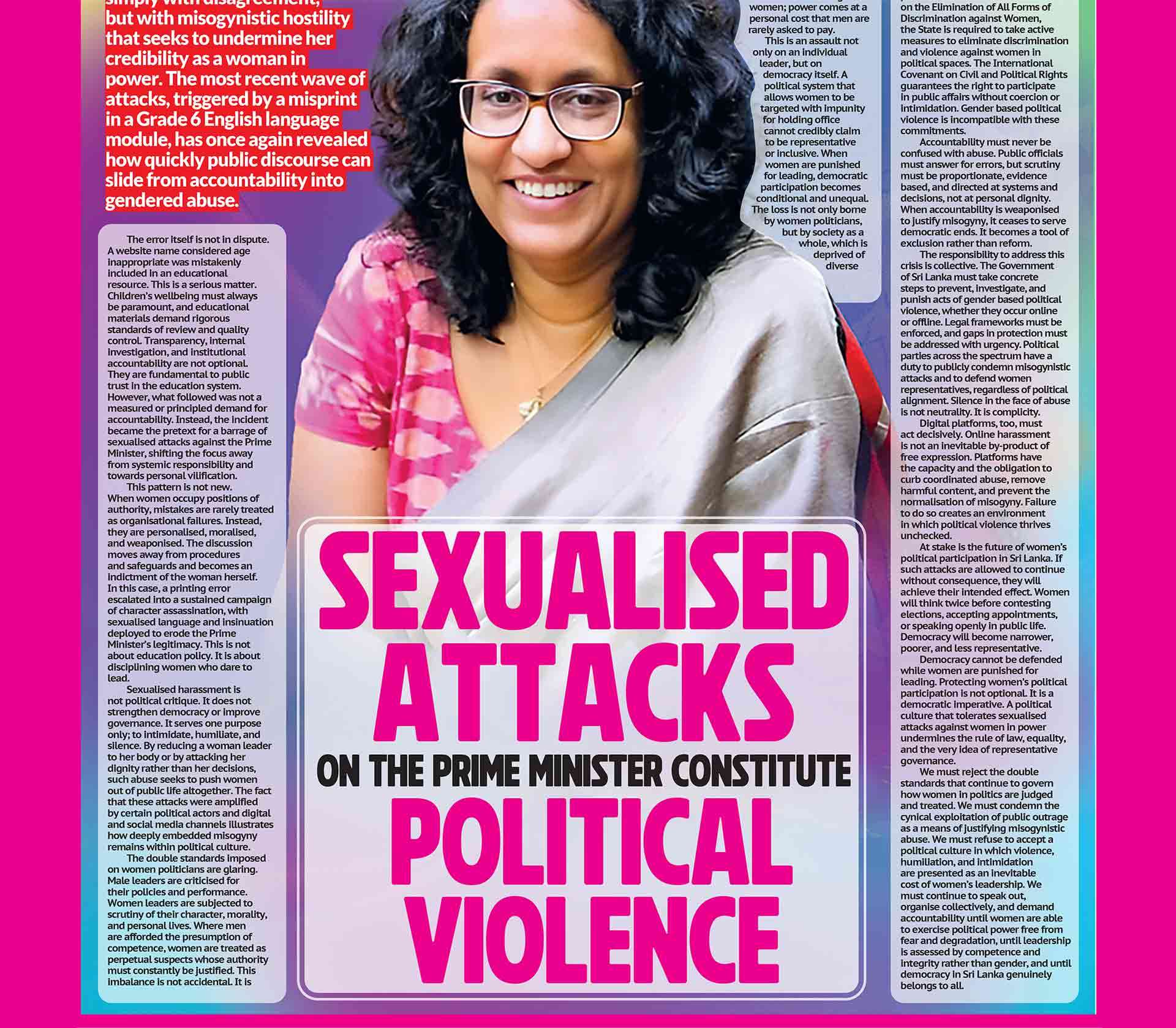 I was raised to believe Islam is a religion of mercy. A faith that shields women from harm, uplifts our dignity, and forbids cruelty. And yet, somewhere between those verses of mercy, some decided to slip in a rusty blade. At 24, I peeled back the layers of what I had been taught. They called khatna, Female Genital Mutilation (FGM), an Islamic duty. They said it was sacred, necessary, a mark of piety. But when I turned to the Quran, there was silence. When I studied the Prophet’s life? Nothing.
I was raised to believe Islam is a religion of mercy. A faith that shields women from harm, uplifts our dignity, and forbids cruelty. And yet, somewhere between those verses of mercy, some decided to slip in a rusty blade. At 24, I peeled back the layers of what I had been taught. They called khatna, Female Genital Mutilation (FGM), an Islamic duty. They said it was sacred, necessary, a mark of piety. But when I turned to the Quran, there was silence. When I studied the Prophet’s life? Nothing.
So where did this come from? Tradition. Plain and simple.
Yet, when challenged, the defenders of this violence, the so-called religious councils, self-appointed scholars, and cultural gatekeepers, scramble for excuses. And what do they find? The tired old fallback: “This is how it’s always been. So surely, God must have wanted it.”
And the moment we speak out, the backlash begins: “She must be a feminist,” or “This is why women shouldn’t speak, they cause fitna.”
That’s the irony, isn’t it? A practice born out of ignorance, wrapped in religion, and passed down unquestioned, because challenging it would mean admitting that generations were wrong.
Moreover, I am not the first to speak, and sadly, I won’t be the last until this practice ends. Brave women before me, activists, survivors, mothers have spoken, written, and pleaded for change. Yet, how many times must we tell the same truth before it is heard?
But here’s the thing: just because our grandmothers and mothers suffered in silence doesn’t mean our daughters should. This is not faith. This is not Islam. This is cultural violence, hiding behind religious words.
Until we rip off that disguise, Sri Lanka won’t dare criminalize FGM. Because how do you outlaw something the religious elite keep blessing?
There is No Divine Mandate
The Quran, Islam’s ultimate source of law and guidance, is silent on female circumcision. Not a single verse obligates it. If khatna were truly essential to our faith, it would be as clear and undeniable as the command to pray, to fast, or to give charity.
But it isn’t.
Instead, what the Quran consistently emphasises is dignity, equality, and protection. How does cutting a young girl’s body, without medical need, without consent, fit into this principle of equality? It doesn’t. It stands in complete defiance of it.

Sri Lankan gender activist Meghana Bahar asks it plainly: “If the creations of the Divine are perfect, who are we to tamper with them?” This question alone dismantles the false piety wrapped around khatna.
So, where exactly do these so-called religious councils and self-appointed defenders of the faith find their justification? What are they clinging to, if not scripture? The answer is uncomfortable but clear: centuries of unchecked cultural practice, wrapped in borrowed religious language to escape accountability.
Backed By Weak Hadiths
Those who insist FGM is obligatory lean heavily on a handful of hadiths, most notably the narration of Umm Atiyya, where the Prophet is reported to have advised a circumciser “not to cut severely.” On this shaky ground, individuals and bodies like the All Ceylon Jamiyyathul Ulama (ACJU) build their arguments. They also cite historical figures like Imam Shafi, Ibn Taymiyyah, and Sheikh Jaddul Haq.
But what they conveniently ignore is this that these narrations are classified as da‘if (weak) by renowned scholars, including Imam Nawawi, because their chains of transmission are unreliable. In Islamic law, a weak narration cannot form the basis of an obligation, let alone one that affects bodily integrity.
Even if we were to accept this hadith at face value, it does not command circumcision. It reflects the Prophet limiting harm in a pre-Islamic cultural practice that already existed, not introducing it as part of the faith. That’s a huge difference, one that the defenders of FGM deliberately blur.
Modern Islamic authorities are clear on this. Dar al-Ifta al-Misriyyah, Egypt’s leading Islamic institution, states that such hadiths are contextual and cannot be taken as universal commands.
As Meghana Bahar rightly points out, “It is very difficult to think of the Prophet as a woman-hater.” And it is impossible to ignore the overwhelming number of authentic hadiths where the Prophet upheld the dignity, mercy, and protection of women, values far removed from the violence of FGM.
So, let’s be honest. If you must cling to a weak narration while ignoring the broader message of mercy in Islam, your argument isn’t religious. It’s cultural stubbornness, dressed up in selective theology.
The Prophet’s Example
Another glaring fact ignored is that the Prophet Muhammad (peace be upon him) never circumcised his daughters, nor commanded it for his wives or others.

If khatna were an Islamic obligation, would the Prophet, described as “a mercy to the worlds”, have overlooked it? His silence is a rejection.
Misleading Scholarly Claims
An article written by a spokesperson of a particular community in Sri Lanka invokes classical scholars like Imam Shafi and Ibn Taymiyyah to argue FGM’s legitimacy. But these rulings were shaped by cultural norms in regions where FGM predated Islam, not by divine texts.
Modern Shafi’i scholars at Al-Azhar University reject FGM, citing its lack of textual basis and harm.
Another distorted argument comes from the ACJU’s 2007 fatwa, which vaguely labels circumcision as “obligatory” for both men and women. But if you actually read it, there’s no clear explanation of what this means for girls. This deliberate vagueness leaves the door wide open for misinterpretation, and for harmful practices like FGM to continue unchecked under the illusion of religious duty.
But let’s step back and look at the bigger picture. These same religious bodies, the so-called guardians of faith and justice, consistently shut women out of conversations that concern us most.
According to them, FGM benefits women, but its subtext reveals control in the name of ensuring “hygiene” or “modesty” often means curbing female sexuality.
Where is the ‘authentic’ Islamic evidence to back this?
Islam didn’t silence women. Men did. Islam didn’t cut little girls. Cultures did. And the tragedy is that men who benefit from these controls now dare to speak for God, twisting mercy into misery. Male-dominated bodies like the ACJU debate women’s bodies while ignoring issues like unequal inheritance or domestic violence, exposing FGM’s true aim: patriarchal dominance, not divine will. FGM is a tool of patriarchy, dressed in religious rhetoric to silence dissent.
It begs the question: whose interests are really being protected here? Because it’s certainly not the wellbeing of women and girls.
Why FGM Persists
Despite its lack of Islamic grounding, FGM endures in Sri Lanka due to cultural inertia, patriarchal control, and social pressures, often mislabeled as faith.
In the Bohra community, where 70-90% of women undergo FGM, khatna is a rite of passage driven by fear of social exclusion. This isn’t just theory. The numbers tell their own story. Families comply to ensure daughters are “pure” or marriageable. Among Moors and Malays, similar pressures persist, though less documented. A 2018 Family Planning Association of Sri Lanka study found mothers often consent to khatna not for religious reasons but because “it’s what everyone does.” This cultural conformity, not Islam, sustains FGM.
Islam’s True Teachings Reject FGM
Islam’s core principles: justice, equality, and mercy condemn FGM:
- Gender Equality: “The believing men and believing women are allies of one another” (Quran 9:71). FGM, rooted in control, violates this.
- Harm Reduction (Maslahah): Shariah prioritizes preventing harm. FGM, a harmful cultural practice, contradicts this.
- Bodily Integrity (Hurma): The body is a divine trust, not to be altered without necessity.
- No Compulsion: “There is no compulsion in religion” (Quran 2:256). Forcing FGM as a “duty” defies this.
Breaking the Silence
For those who have already been following the case of or have been part of this fight to end FGM in Sri Lanka, I know you have read, heard and watched this before.
It’s been written, spoken and protested. Activists have engaged with scholars, tried to educate communities quietly and respectfully.
The same women that stood up have been labelled troublemakers within their community, called feminists with an “agenda,” bad Muslims, westernized minds.
Their intentions have been questioned. They’ve been told, “This is your personal trauma, don’t generalize it.” “Why are you airing our dirty laundry for non-Muslims to see?”
And you know what? Despite it all, this will be spoken. Because if we stop, the next generation will inherit this blade and call it faith.
But the hard truth is, in Sri Lanka, no matter how loud our voices, the religious elite still hold the microphone. Until they stop defending this in vague fatwas and cultural justifications, politicians won’t dare touch it.
Until families stop fearing ostracism, mothers will keep taking their daughters for this so-called “rite of passage,” even if their hearts break doing it.
As immediate action, I believe we need education in madrasas. Brave men to speak up in Friday sermons. Health professionals to call it what it is: mutilation, not medicine. And the question is no longer whether FGM is wrong. The question is: will Sri Lanka have the courage to criminalize it, even when the loudest voices in the room wear religious titles?












